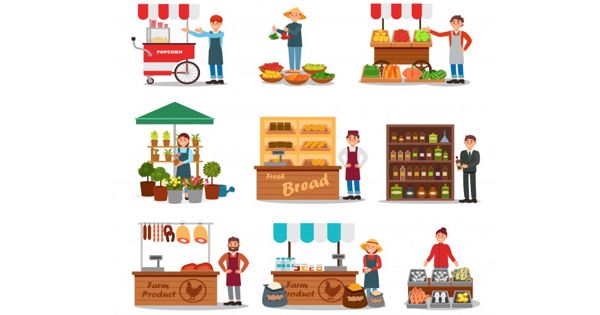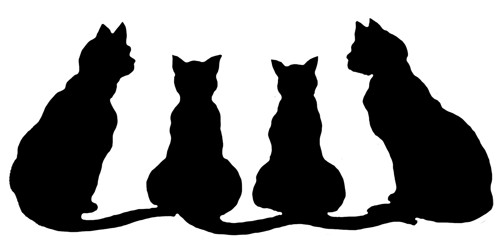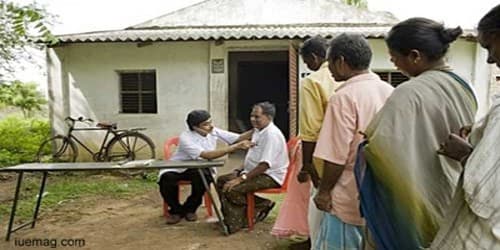Street Hawkers – spreads color and variety to city life
Street-hawkers add color and variety to city life which in their absence would lose much of those little excitements that bring to us the much-needed diversion so necessary to make life endurable. They are both sellers and buyers. They bring the market to our doorsteps, and sweetmeats for children, utensils for housewives, piece-good fabrics to keep the domestic sewing-machines go whirring, fuses for the kitchen, and knick-knacks for all. What a variety the offer I and each hawker have his or her distinctive drawl and musical intonation.
There are buyers as well. The buyers of papers and old bottles, of course, are the most familiar. With their knapsack stung across their shoulders and their characteristic style of the announcement, they infest every street, lane, and bye-lane. They are moving clearing-house for unwanted articles. If you do not want, old clothes, broken chairs, gramophone records, anything that you do not want, keep a watch and you will get the man who is only too glad to take them off your hands. They may not be common as your ’bottle-wallahs’ for no one has these articles every day, but they will come by your street once in a month or two.
You can include among the hawkers the handy repairman who helps to take little troubles off your shoulders. You have lost or mislaid your key: and up comes the man who makes for you a substitute for a paltry few paise; what a botheration it would be if there were no such men. Your kettle or saucepan has sprung a leak, – look out from your doorsteps, and soon the soldering-man will come along with his small charcoal oven and bellows, and set them right in a few minutes. The carpenter, the upholsterer, the umbrella-repairer, the furniture-polisher, and sorts or men go around the streets, calling out to the busy housewife or the distracted householder to lace all petty troubles in their hands, and everything will be all right.
The hawkers have not only his musical voice to call us to attention, but his exact period of perambulation. Every bay in the morning, the newspaper-vendor goes wheeling on his cycle, and the sweetmeat-seller hawkers his palatable dainties. In the afternoon, especially on sultry summer days, one listens drowsily to the strident jingle made by the utensil-seller and wakes delightedly at the call of ice-cream vendor as he pedals his refreshment along the sun-baked streets. Then as evening draws nearer, the Chanachur-wallah jingles his way to the tune of improvised rhyming tags.
Fashions change among street-hawkers as in everything else. Many cries that used to be heard by our parents in their childhood are now no longer heard. In the ample leisure of bygone days when every grandfather enjoyed his hookah, one used to hear early in the mooring the raw tobacco-seller hawking his ingredients, -a cry that is no longer heard when young and old smoke a cigar or cigarette in-between pressure of work. Gone is the perfumery-seller, around whom our grandmothers in their youth, used to gather when he opened his box and filled the housed with the fragrance of attar and hair-oil and various indigenous scents now displaced by exotic odors imitated from the west. The flower-seller is also gone who hawked his bouquets and g garlands along the streets at nightfall. The economic pressure of these days both one our time and money provides no room for such luxuries leisure.
















